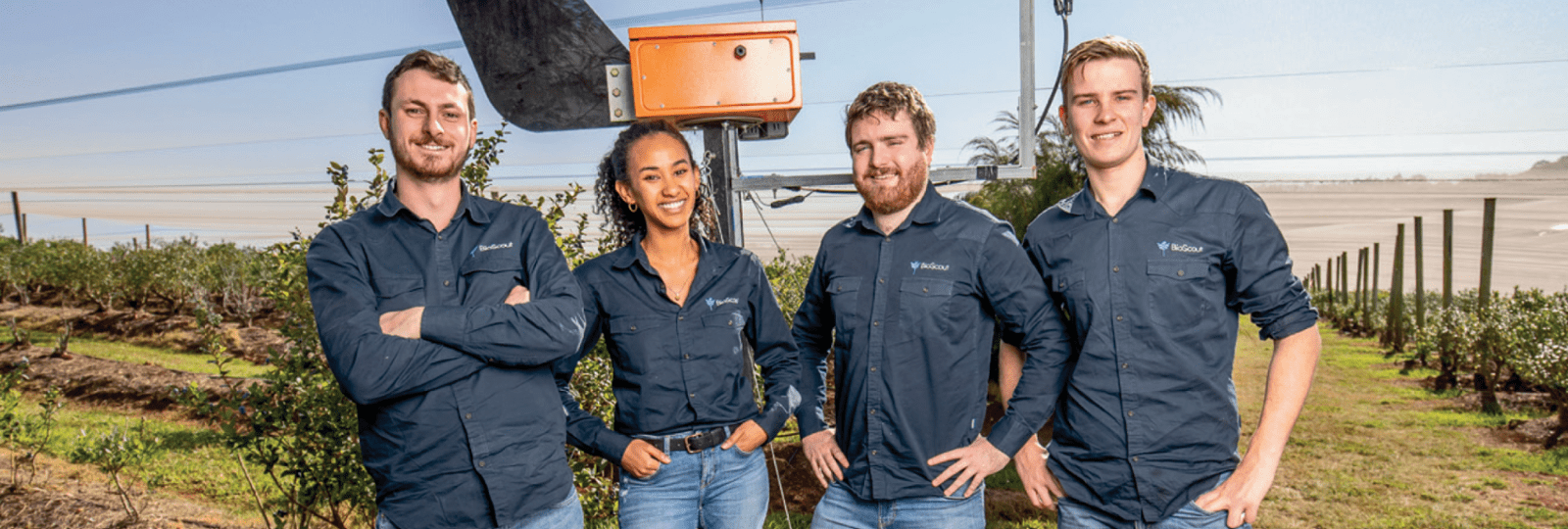BioScout | Celebrating Australian Food and Agribusiness Innovations 2020

Challenge
Disease detection in agronomy hasn’t changed much since the 1950s, with current detection and management practices leaning towards the reactive end of the scale.
Where growers apply fungicide sprays based on the presence of symptoms or employ a calendar-based program fundamentally tied to historical conditions, the application is often too late to be of real benefit. While the use of passive spore traps can reliably detect the presence of disease and deliver an accurate diagnosis, that information is received two to three weeks beyond its useful point.
When a PhD candidate and two honours students from the University of Sydney were researching a problem common to both healthcare and agriculture — the spread of airborne disease — the idea for an efficient way of tracking the spread of crop pathogens like stripe rust in wheat began to develop.
Solution
Where other technology offerings claim to investigate disease, many utilise satellite imagery and algorithms to determine plant stress and are therefore bound by the same time delay issue as the tried-and-true solutions of yesteryear.
The patented BioScout Platform is built for farm fields and uses a combination of air sampling, mapping and data analytics to track disease spread. Sensors are placed throughout the field to send crucial data to the disease dashboard and text message alerts of high threats.
The dashboard translates data inputs and location-based information for predictive modelling of infestation, allowing users to see potential disease spread and threat vectors.
This information permits a more proactive approach, allowing growers to pinpoint precisely where fungicide application is required, before symptoms even appear, delivering a better yield quality outcome and minimising potential financial losses.
Outcome
The BioScout platform has been proven to detect a range of diseases and pathogens across many fruit and nut crops and the team hopes to finalise commercialisation within 12 months.
